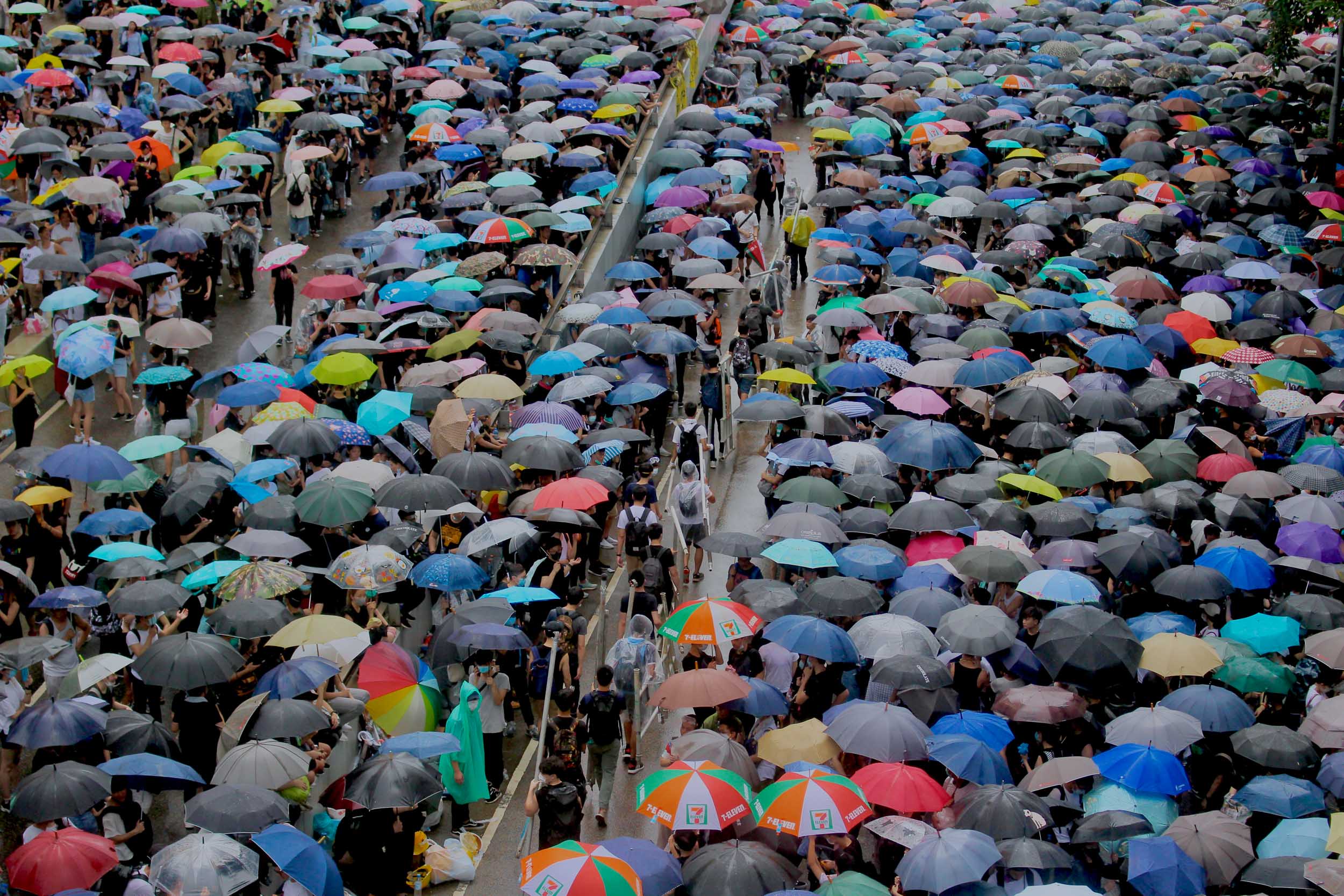Three years later, it can be hard to remember all of the shocking events that took place related to the protests against the controversial extradition bill, but Coconuts Hong Kong was there to document or write about them. Here’s a timeline of all the key events, including links to our stories about them.
February 2019: Hong Kong officials proposed changes to extradition laws, prompted by the stalled case of Chan Tong-kai, who had formerly been a student in Hong Kong and stood accused of murdering his girlfriend during a Valentine’s trip to Taiwan the previous year. After he returned home, he was arrested by Hong Kong police weeks later.
June 9, 2019: Organizers said more than 1 million people took part in the first major protest against the controversial extradition bill. The figure dwarfed the city’s previous record protest, 2003’s July 1 protest, which saw some 500,000 people turn out to protest a now-shelved national security bill.
June 12, 2019: Thousands of protesters flooded Harcourt Road and clashed with police in a bid to stop lawmakers from entering the Legislative Council to hold a second reading of the bill. Police fired tear gas grenades, rubber bullets and bean bag rounds at protesters, while then-Commissioner of Police Stephen Lo declared the clashes a riot.
June 15, 2019: An anti-extradition bill protester in a yellow raincoat fell to his death outside Pacific Place shopping mall while attempting to get away from firefighters who had gone to the scene to persuade him to come down. This happened shortly after Hong Kong Chief Executive Carrie Lam announced that the legislature would “pause” its work on the controversial extradition amendments.
June 16, 2019: Organizers said nearly 2 million took part in Hong Kong’s largest protest ever to demand the government withdraw the bill.
Many protesters also left bouquets of white flowers, written tributes and origami cranes outside Pacific Place, where the young man fell to his death the day before.
July 1, 2019: Protesters stormed inside the Legislative Council building, tossed eggs and spray-painted the city’s Bauhinia emblem on the anniversary of Hong Kong’s return to China. Police started using tear gas to disperse protesters hours later.
July 9, 2019: Carrie Lam declared that “the bill is dead”, but stopped short of withdrawing it.
July 21, 2019: Dozens of people were injured after a group of men in white shirts entered Yuen Long MTR station and began to indiscriminately attack protesters, passengers, and journalists following an anti-extradition bill rally.
August 5, 2019: Protesters brought eight out of 11 MTR lines to a standstill by blocking train doors and preventing carriages from moving.
August 31, 2019: Riot police charged into Prince Edward MTR station and attacked suspected protesters and commuters.
September 4, 2019: Carrie Lam finally announced the formal withdrawal of the controversial extradition bill.
September 29, 2019: An Indonesian journalist suffered an injury to her right eye after riot police fired a projectile at her face while trying to disperse demonstrators at a protest.
October 1, 2019: A protester was shot in the chest with a pistol round, as thousands upon thousands of Hongkongers took to the streets on China’s National Day.
October 5, 2019: Much of the city ground to a halt, with the entire subway system suspended and swathes of shops and malls shuttered, after a night of violence sparked by a ban on pro-democracy protesters wearing face masks.
October 13, 2019: A police officer was cut in the neck by a protester.
October 16, 2019: Jimmy Sham, the former leader of the now-defunct Civil Human Rights Front was attacked.
October 19, 2019: A man stabbed a student in the neck and stomach as he was handing out protest-related fliers in Tai Po.
October 23, 2019: Chan Tong-kai, who is still wanted by Taiwanese authorities, was released from a maximum-security prison.
November 11, 2019: An unarmed protester was shot with live ammunition in Sai Wan Ho by a police officer.
A man was doused in a flammable liquid and set on fire during an argument with protesters on a footbridge in Ma On Shan.
November 11-15, 2019: Protesters inside the Chinese University of Hong Kong threw objects onto railway tracks near the University MTR station as part of a general strike to disrupt traffic. This was followed by clashes between protesters and police, with flames lighting up and police launching tear gas grenades into the campus.
November 17-29, 2019: A similar siege took place at Polytechnic University of Hong Kong.
May 22, 2020: Beijing announced it would enact a national security law in Hong Kong that would target what it identifies as foreign interference, terrorism, and subversion against the central government.
July 1, 2020: A man became the first person to be arrested under the National Security Law. Demonstrators protested against the just-enforced law that day. The man was later jailed under the National Security Law for nine years.





Reader Interactions